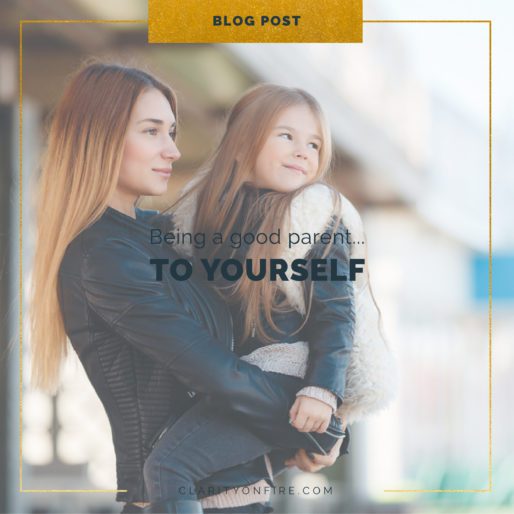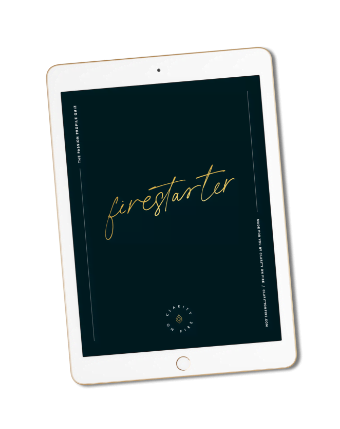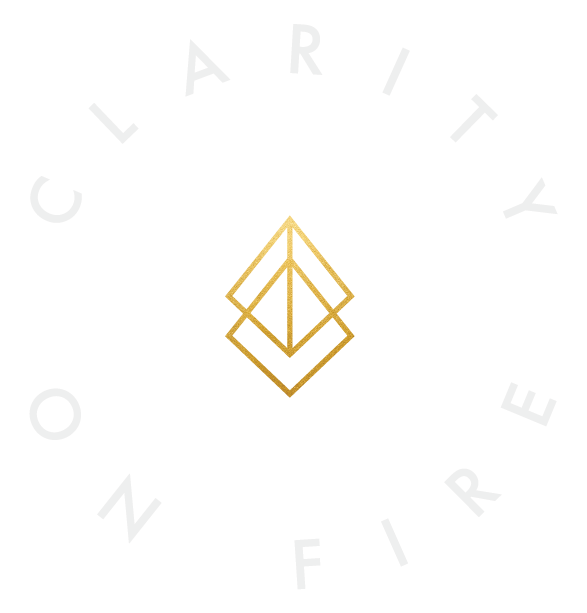Have you ever been around a 2-year-old for any length of time?
My favorite thing about them (maybe more in theory than in practice) is that they go all out, and they don’t care in the slightest what anyone thinks about it. Never more than when they’re throwing a tantrum.
They’ll bang their heads against the floor out of exhaustion. They’ll purposefully go completely limp when you try to pick them up, so it’s like hefting a 30-pound rag doll. They’ll bite a sibling if they don’t like the way she’s playing. They’ll suddenly stop crying and start being nice in an attempt to manipulate you … and sometimes it works.
Two-year-olds are equal parts cunning, sweet, whip-smart, and above all, constantly testing boundaries.
Because of this, adults have to become very good at enforcing boundaries that (even though the kid will definitely push against them) are healthy for everyone.
What’s dawning on me lately is that, while most of us experienced some sort of structure and boundaries growing up … we didn’t take that with us into adulthood. And even for those of us who are now (or who want to become) parents, we might be willing to do it for our own kids, but we’re not always good at doing it for ourselves.
And this is a problem.
YOU DON’T GROW OUT OF BOUNDARIES
Imagine this:
There’s an elementary school right next to a major thoroughfare. The kids love to play outside during recess, but there’s no fence between the school and the road. So the adults have to constantly monitor the kids every second to make sure no one runs into the road, which is anxiety-inducing at best and a huge liability at worst.
But if you built a fence … the anxiety melts away. The kids get to have fun, the adults get to relax, and no one has to worry about hitting a kid with their car. It’s a win-win, all around.
Our parents basically built fences for us our entire lives.
Bed times, limits on TV, brushing our teeth, eating our vegetables, who we could and couldn’t spend time with, physical exercise, extracurricular activities … whether or not we liked it at the time, we got structure that was meant to keep us healthy, safe, and hopefully thriving.
Our parents were human, which means that they weren’t always perfect at this. Some of us got more freedom; some of us got too much structure. Most of us had good parents who tried their best, even if their approach was sometimes flawed.
But without question, something happened to all of us:
WE BECAME ADULTS AND FORGOT TO DO THIS FOR OURSELVES
Freedom — to say, think, do, wear, be, love, accomplish what you want — is pretty awesome. It’s certainly one of the best parts about being an adult (at least for those of us lucky enough to have basic freedoms in the first world).
But freedom, like anything else, can go too far.
What’s become clear to me is that, when we don’t create (and enforce) loving-but-firm boundaries for ourselves, we will experience the effects … in the form of anxiety, low energy, frustration, and generally poor decision making.
We might not throw tantrums (or maybe we will…), but here’s what I think an excess of freedom (and a lack of healthy boundaries) can look like in our day-to-day lives as adults:
- Going to bed way too late and not getting enough sleep.
- Scrolling through your phone in bed, aimlessly.
- Scrolling through your phone aimlessly, period.
- Binge-watching Netflix as a way to numb out.
- Not being able to say “no” to people’s requests, even when we don’t have the desire or bandwidth to say “yes.”
- Not treating our physical bodies with respect … this could be anything from eating like crap, to not working out, to being constantly dehydrated.
- Talking to ourselves in really mean, judgmental ways.
- Compulsively checking email, even when you know it’s a distraction.
- Allowing people to treat us badly.
I could go on. But I think you get the idea. And I’m sure you have ways you could add to this list that are uniquely your own.
But here’s the big point:
YOU NEED HEALTHY BOUNDARIES NOW AS MUCH AS YOU DID AT 2 YEARS OLD
We don’t just stop needing structure once we reach adulthood. And even though we don’t need our parents from a survival standpoint anymore, that doesn’t mean that we still couldn’t use an advocate — someone to stand up for what’s best for us even when we don’t like it or when it scares us.
I’ll be honest. It would be pretty nice to have someone take my phone away from me when I know scrolling through Instagram is making me anxious. And it would be great to have someone stand up to a bully when I’m too scared to say “no.”
But that’s not our parents’ job anymore. It’s our job to parent ourselves. Which means we’ve got to be the ones to build the fences.
I’ve been trying some fence-building of my own lately. And I’m actually loving the results. Here’s how I’ve been trying to parent myself:
- I’m temporarily off Facebook. I was tired of how much I was just aimlessly scrolling.
- I set a 4-hour limit on my computer every day. This means that I’ve got to be very intentional about how I check email and get work done.
- I’m eating less sugar. I already eat pretty healthy, but I’m intentionally eating even less sugar right now.
- I’m exercising regularly. It’s not perfect, but even if it just means walking my dog for a mile or two every day, that’s OK.
- I’m meditating almost every day. Just for 20 minutes. It’s SO helpful at calming my mind and refreshing my energy.
- I’m not allowed to look at my phone in bed. No grabbing for it first thing in the morning or mindlessly scrolling at night.
- I’m going to bed a little earlier and waking up a little earlier.
- I’m talking to myself the way a good parent talks to you … with a gentle-but-firm tone, patience, and empathy.
THIS LAST POINT IS MAYBE THE MOST IMPORTANT
Because if there’s one thing I know to be true both for myself and practically everyone I coach, it’s that our internal dialogue is often so mean.
When you’re focusing on being a good parent to yourself, you just can’t be as harsh. You can’t fathom saying, “Ugh, you’re such a failure. You’re an awful person,” because no adult in their right mind would say that to a small child.
Instead, you’ll soften your dialogue a bit. It doesn’t mean that you won’t still nudge yourself to do things you don’t want to do (because you will), but you won’t have to be so judgmental about it. You can be gentle, loving, and firm, and you’ll get far better results from yourself.
This experiment in self-parenting has taught me a really important lesson — that healthy boundaries can make you feel really good and that structure is its own form of freedom.
![]() Structure is its own form of freedom.
Structure is its own form of freedom.
I have more energy now. I’m being nicer to myself. I know when to kindly push myself to do something and when to let it go.
I might have more limitations, but I have more actual freedom — because I’m no longer stealing my own ability to relax, create, and thrive.
I would love to hear how you could start parenting yourself. What would that look like? What would have to change? Come tell me, in the comments!
SPOTLIGHT ON … THE PASSION PROFILE SHORT COURSE
This week, we’ve got something good coming up that we want you to know about!
If you haven’t heard, we’re really close to re-launching a brand new Clarity on Fire website. To celebrate that, as well as the holiday season, we’re doing something special:
During the week of December 8th through December 15th, we’re giving EVERYONE a $50 discount code for the Passion Profile Short Course. AND … everyone who signs up for the PPSC is also going to get an hour-long bonus video called “How to find a job you LOVE.”
If you don’t know much about the PPSC, the (mega-short) story is that it’s a completely online, do-it-yourself, 5-hour-ish long course that you can finish in as little as one day … all about how to connect your career to your Passion Profile.
So, if you took the Passion Profile Quiz and loved your result, and you’ve been wondering how to have a career that aligns more with your values and passion … this course is where we recommend starting.
Here’s what a couple of PPSC enrollees have said about their experience:
“I was immediately sucked in and have finally found excitement and motivation in me that I haven’t felt in a long time.” — Dana S.
“When I started the PPSC, I hated my job. Even though I had a ‘cool’ job, it was a horrible fit for me, and no one had ever told me that it was OK for me not to like it! I made such HUGE progress that I found a new job within a few weeks at a great company. And it’s SUCH a good fit for me!” — Lindsey P.
No need to mark this on your calendar or join any special list. This is just your head’s up! We’ll remind everyone about it when the time comes. 🙂




Thank you for the recent blog. I am trying to parent myself more than I ever have. Several friendships have waned because I am setting boundaries; I didn’t like the way they treated me. I’m walking away from my work at the end of the day, which is very difficult because teaching bleeds heavily into “non” contract hours. I’m also telling myself to live each day and then let go of yesterday; I learn from it and cherish moments but I don’t re-live situations like I used to.
Your video and the idea of getting a job I love ( many aspects) that feeds my soul and doesn’t suck it dry is very tantalizing to me. I’ve been in search mode and keep telling myself it’s not possible to leave to teaching and do something else at my age. I need to hear the opposite and know it will be okay.
Thank you!!
Hi Ann Marie! I can definitely relate to the necessity of setting boundaries with people. It’s not easy, and it can often be painful, but I think it’s ultimately rewarding in its own way. I want to encourage you to DEFINITELY believe it’s possible to do something else besides teaching, at ANY age, if that’s what you want. I’ve met so many people who’ve transitioned into entirely different careers at ALL ages. Which reminds me, I recently heard an interview with a 90+ year-old-woman who said something to the effect of, “I’m just getting started!” Isn’t that awesome?? You’re just getting started, too. 🙂
Boundaries are something I’ve been giving a lot of thought to recently. I’ve also been thinking a lot about my inner child and what it means to care for it – so this article came up at just the right time. Very well-articulated and resonant. Thank you for sharing!
You’re welcome, Joanna! Parenting the inner child is something that really hadn’t occurred to me until very recently. I’m glad it’s occurring to other people, too!
Last week, I was sick with a bad case of the flu. I rarely get sick, and I noticed how differently I was treating myself that week compared to how I usually do. I was “parenting” myself – making sure I was getting plenty of sleep and eating well, making sure I was taking breaks and not overtaxing myself or stressing myself out, saying no to things I would normally feel guilty saying no to, etc. I realized that these things need to happen on a regular basis, not just when I’m under the weather.
It’s funny, I usually cringe at the word “structure,” but thinking of it as a way to gain more freedom really opens up my interpretation of it. It’s not actually about restricting yourself, it’s about making a choice about how you want to spend your time and lead your life. “Structure is its own form of freedom” – that is so on point. I think I’ve found my new mantra 🙂 Thanks for this amazing post!
Hey Kate, great to hear from you! If you haven’t read “Essentialism” by Greg McKeown, I totally recommend that you do. He goes into depth about the concept of structure being its own form of freedom … it’s a favorite of mine!
Best post ever. This really hits home. Thanks for all that you do, Rachel and Kristen! I’ve been a big fan of your work for a lonnnng time now.
Thanks again!
Great article. This is definitely something I need to incorporate into my life right now.
How would you advise keeping to a structure and not getting bored. Though I like and need structure in my day I sometimes get bogged down and bored of the repetitiveness (is that a word?)